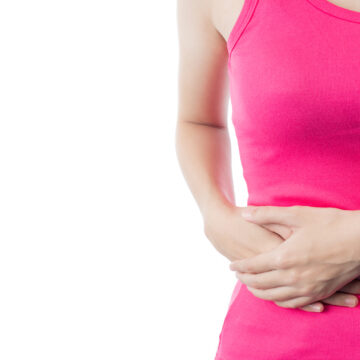
-
- Inflammatory Bowel Disease (IBD) includes digestive tract conditions such as Crohn’s disease, ulcerative colitis, and indeterminate colitis.
- The three IBD conditions can have similar and overlapping symptoms.
- Looking closely at the symptoms will help in diagnosing each IBD conditions correctly.
Inflammatory Bowel Disease refers to a group of disorders characterized by prolonged inflammation of the digestive tract. Crohn’s disease (CD), ulcerative colitis (UC), and indeterminate colitis (IC) are the types of IBD. These conditions can have similar and overlapping symptoms, and diagnosing them can be a bit difficult.
Know the different symptoms of IBD here to help you distinguish one type from the other.
1. Abdominal Pain

Abdominal pain can be associated with many diseases. But with abdominal pain related to Crohn’s disease, the pain tends to occur in the middle or lower-right part of the abdomen. In ulcerative colitis, the pain is felt as cramp-like in the lower-left portion of the abdomen. The abdominal pain can also come and go and may not be experienced by everyone with IBD.
2. Persistent Diarrhea

Persistent diarrhea, a kind of diarrhea that lasts more than three days, is another IBD symptom. Diarrhea can be experienced as watery bowel “explosive” bowel movements about 10-20 times a day.
3. Blood in the Stool

A bloody stool or possible bleeding from the rectum is a characteristic of the three types of IBD. People with ulcerative and indeterminate colitis mostly experience it.
4. Mucus in the Stool

Unlike blood in the stool, mucus in the stool is a normal occurrence. Mucus is a normal part of the stool, and it is often not visible. When visible amounts of mucus are observed from the stool, it could mean that ulcers and fissures have formed in the colon. Passing mucus in the stool is sometimes experienced by people with Crohn’s disease and ulcerative colitis.
5. Unintentional Weight Loss

When you are not on a restricted diet or doing some weight-losing exercises but still losing weight, you might behave IBD. Lack of appetite and diarrhea due to IBD can lead to weight loss.
6. Other Common Symptoms

Bloating, flatulence and nausea are often seen in people with Crohn’s disease and ulcerative colitis but not in people with indeterminate colitis. Crohn’s disease presents much more symptoms like mouth sores, anal itch, fistulas, abscesses, and fecal incontinence. These symptoms are not seen in ulcerative and indeterminate colitis.
7. Unusual Symptoms

People with IBD may also experience some unusual symptoms such as fever, fatigue, joint pains, skin rashes, increased menstrual symptoms, and more intense IBD symptoms during or before menstruation.
8. Complications of IBD

IBD can also lead to complications like bowel obstruction and perforation, intestinal abscesses, fissures and fistulas, toxic megacolon, and colorectal cancer. Complications outside the digestive tract can also develop, including anemia, arthritis, blood circulatory problems, eye disease, gallstones, osteoporosis, and neurological symptoms.
Source: Very Well Health
